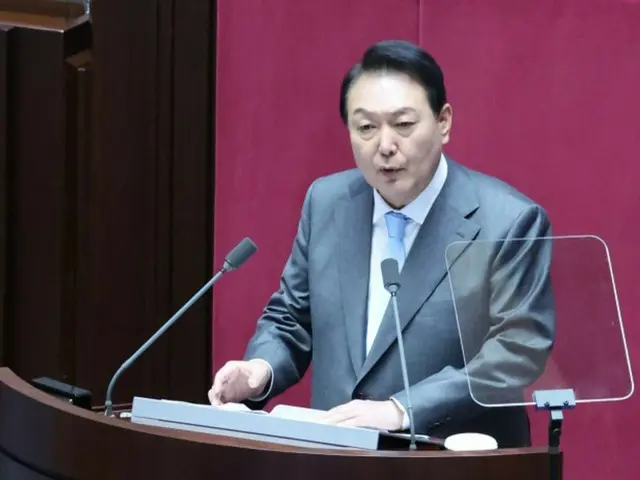Last year, Japan announced its ``Basic Plan for Space Development.'' President Yoon has long expressed the idea of making Korea a ``space power,'' and has pledged to become Korea's version of NASA (National Aeronautics and Space Administration).
A bill related to the establishment of the Space and Aerospace Agency was passed by the Diet in January of this year. It is expected to be launched around May or June at the earliest. The planned location for the agency is Gyeongsangnam-do in the southeastern part of the country.
) On the 13th, an inauguration ceremony was held in Sacheon City for a project to create an industrial complex called the ``Space Industry Cluster.'' This project aims to foster a private-sector-led space industry in Gyeongsangnam-do (satellite specialized area).
The idea is to build a triangular system between the two regions: Chullanamdo in the southwest (Jollanam-do, a projectile-specialized district), and Daejeon City in the central region (a special research and human resources development zone). Various fields related to space
By linking these industries, it is expected that the efficiency and effectiveness of private-sector-led space industry development will increase. President Yoon, who attended the inauguration ceremony, said, ``We hope to land a Korean exploration vessel on the moon in 2032.
This will be a big step toward the future of raising the Taegeukgi (South Korean national flag) on Mars in 1945. The space industry cluster will pave the way."
President Yoon announced the ``Future Space Economy Roadmap'' in November 2022. “Space
In order to make the leap to becoming a "powerful nation," the document outlines six policy directions and support measures for the period up to 2045. Specific goals were also set to land a spacecraft under its own power on the Moon in 2032 and on Mars in 2045.
In line with this roadmap, South Korea has achieved results in its space business in recent years. In August 2022, South Korea's first lunar probe "Danuri" will be launched at Cape Canaveral in Florida, USA.
A successful wrap-up party was carried out from a military installation. In December of the same year, it entered orbit around the moon and began its lunar exploration mission. Last May, the indigenously developed rocket “Nuri” carried a practical satellite for the first time.
It was launched and successfully placed the satellite into orbit. At the time, President Yoon expressed his delight, saying, ``This is a great achievement that declares that South Korea has joined the G7 (seven major countries) in space power.'' ``We created our own satellites.
The United States, France, Japan, Russia, China, and India are the only countries that have launched their own self-produced projectiles into space orbit.''
"It's going to change a lot," he said, expressing his expectations. In January of this year, in order to newly establish the Space and Aerospace Agency, a special bill concerning the establishment and operation of the Space and Aeronautics Agency, a bill to partially amend the Space Development Promotion Act, and a government
Three related bills, including the Bill for Partial Amendment of the Organization Law, have been passed by the Diet. The bill establishes the Space and Aerospace Agency as a central administrative agency under the Ministry of Science, Technology, and Information Communication (departments are equivalent to ministries), and is responsible for aerospace policy and research.
He will be in charge of development, industrial development, civil and military cooperation, and international cooperation. Additionally, the chairman of the National Space Commission will be elevated from the position of Prime Minister to the President, and support for the space industry cluster will be strengthened.
It also includes policies. President Yoon has advocated for the Space and Aerospace Agency since the time of his last presidential election, and when the related bill passed the National Assembly, President Yoon said, ``This is a great way for South Korea to leap forward as a space power.''
"This is a big step forward." The South Korean government's goals for the Space and Aviation Administration are to ``cultivate more than 2,000 innovative aerospace companies,'' ``create approximately 500,000 jobs,'' and ``shape the global aerospace market.''
The goal is to achieve a 10% At the inauguration ceremony for the aforementioned Space Industry Cluster held on the 13th, President Yun once again emphasized the importance of space development led by the private sector. Space established last year
Those who will more than double the size of the fund, fully support startups to grow into global companies, and draw out more than 100 trillion won in private investment by 2045.
The needle was also shown. Referring to the economic development that South Korea has achieved in the past, which has been described as a "miracle," President Yoon said, ``We must move boldly toward the distant universe.
Following the ``Miracle on the Han River'' and the ``Miracle of Semiconductors,'' the Republic of Korea's third miracle will be a miracle of space.''
2024/03/15 14:38 KST
Copyrights(C)wowkorea.jp 5

